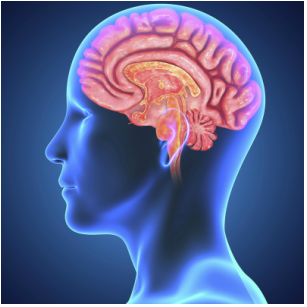
Read more here:
http://www.foxnews.com/entertainment/2017/03/26/downton-abbey-star-opens-up-about-eating-disorder.html
 In a brief but empowering interview, Jessica Brown Findlay shares her personal struggle with #disordered #eating to remind us to keep the dialogue regarding mental health open. Although great strides have been made in attempting to reduce the stigma regarding mental illness, it is far from extinguished. Open conversations regarding mental illness remain to be a taboo topic for many, and as a result, affected individuals are driven even further underground, and subsequently, even further away from the care and support that they deserve. Read more here: http://www.foxnews.com/entertainment/2017/03/26/downton-abbey-star-opens-up-about-eating-disorder.html
0 Comments
 A successful recovery for those with eating disorders is highly dependent upon early intervention. However, many patients feel as though they aren’t receiving access to the care that they deserve, even after discussing their concerns with their GP. This can be tremendously demoralizing for patients who have worked up the courage and bravery to seek out help. “Eating disorders are a competitive disorder – to say to someone you are not ill enough for treatment, you need to be thinner, you are basically saying go away, make yourself more ill”. To read the full article, visit: http://globalnews.ca/news/3276396/young-women-with-eating-disorders-arent-getting-the-help-they-need-study-says/  Access to care is one of the largest barriers facing individuals with eating disorders. An innovational approach to eating disorder treatment is emerging, however, in response to this issue. Mobile applications have emerged that enable patients with eating disorders to connect with their treatment provider electronically between sessions. Patients can log their food intake/meals as well as thoughts, behaviours, and emotions (and more) throughout the day, which can be viewed by the treatment provider electronically. The application enables users and their respective health care providers to recognize patterns and associations regarding the disordered behaviour. In addition, patients can communicate with their treatment provider electronically in between formal appointments. Such mobile applications have also offered user’s the ability to access acute crisis support services and chat lines. Mobile access to support may not only help in addressing the issue of access to care, but may be extremely valuable for those who are less comfortable seeking care in-person, those who are geographically isolated from treatment facilities, or those who are less confident in seeking help. It would also provide an opportunity for continued care and support between formal appointment sessions. Read more here: http://abcnews.go.com/Health/treatment-eating-disorders-mobile/story?id=45898259  Patients with eating disorders are at a high risk of slipping through the cracks of our health care system. The hectic climate of a general practitioners office combined with the “invisible” nature of these illnesses creates the perfect opportunity for physicians to mistakenly overlook the possibility of an underlying eating disorder. Harnessing the courage to seek out care for an eating disorder is far from easy. Patients that are turned away or dismissed upon seeking such care can feel tremendously demoralized and hopeless. Such an experience can often extinguish any potential of them seeking care in the future. This article provides an insightful narrative about one individual’s journey in seeking care for her eating disorder and the eye-opening pitfalls she encountered. It provides an important reminder that as health care providers we must treat the individual and not just the symptoms. Read more here: http://www.independent.co.uk/voices/nhs-mental-health-eating-disorders-gp-no-funding-local-authorities-a7476531.html  In light of the recent Rio 2016 Olympic Games, former members of the US Womens' Swim Team are speaking out about the prevalence of disordered eating and body image issues among female athletics. More specifically, they speak to competitive swimming, where often individuals push themselves to extremes and experience gruelling training in their quest for top performance, meanwhile they spend almost every day in a bathing suit and develop a muscular built physique which may not be in line with a young woman's views of what femininity and beauty should look like. "“Binging and purging was my, I guess, outlet,” said Hyman, 37. “Part of it was my own insecurities; part of it was my own control, the sense of being in control or something I could control. It wasn’t strictly just a body image issue or strictly just, ‘I’m trying to perform better.’ As an athlete I think there were other emotional challenges that I manifested into my eating disorder as a way of coping. It wasn’t something that I was necessarily secretive about. My coaches were aware, my parents were aware, and I wasn’t shy about it. One of the things I’d always prided myself on was discipline... Jennifer Carter, Ohio State University Sports Medicine Center’s director of sport psychology, agrees there are specific risk factors for eating disorders in female athletes, such as a belief that thinness equates to better performance (whereas in male athletes more muscularity equates to better performance), revealing uniforms and, sometimes, a type of perfectionist personality." For the full article, click here: http://www.usatoday.com/story/sports/olympics/rio-2016/2016/08/03/us-womens-swim-team-body-image-eating-disorders-and-supporting-each-other/88048534/  New research suggests that mindful eating could not only forestall #overeating and #obesity, but #eating #disorders such as #anorexia and #bulimia as well. As a result, mindful eating practices have been incorporated into therapeutic programming at many eating disorder treatment centres. Recently, the practice of mindful eating has been integrated into schools with the hopes of decreasing the risk of eating disorder development. The #mindful #eating practice aims to teach children how to eat intuitively and to listen to their body signals to ultimately decrease risk of developing negative relationships with food. For the full article, click here: https://www.washingtonpost.com/news/to-your-health/wp/2016/03/16/how-schools-are-using-mindful-eating-to-help-prevent-eating-disorders/  A young girl describes her experience with both bulimia and trichotillomania, and the pain and shame she endures from both, in this short but moving poem "Shut-In". " ... how will she live another day? that drag on by when you're alone a hut of hair will make her home straight from her scalp onto the floor a hat will hide a little more of all her shame ..." For the full poem, check out: http://allpoetry.com/poem/5434981-Shut-in-by-ashesxx As mentioned in our previous post on deep brain stimulation (DBS), this form of neurostimulation which is being studied at Toronto's University Health Network, is also being offered as an experimental treatment to patients with anorexia and mild forms of Alzheimer's and it's already showing promise for both. You can learn more about some of the early results of DBS in patients with these mental illnesses here: http://www.ctvnews.ca/health/health-headlines/canadian-researchers-use-electricity-to-stimulate-brains-of-alzheimer-s-patients-1.2221623 http://www.ctvnews.ca/w5/deep-brain-stimulation-offers-treatment-hope-for-severe-anorexia-patients-1.2266141  A new study is shedding light on how brain function may affect and explain eating behaviours in patients with anorexia. The study which demonstrates how there is increased activity in the dorsal striatum of patients with anorexia, an area associated with habitual behaviour that is impacted in other disorders including addiction, also explains why our traditional treatments such as talk therapy or medications fail to be effective in many. Rather, the study suggests we reconsider our management strategies, including by putting focus on early diagnosis and treatment. "The anorexic women were more likely than the healthy women to choose low-fat, low-calorie foods, and they were less apt to rate high-fat, high-calorie foods as “tasty,” the study found. As expected, both the anorexic and the healthy women showed activation in an area known as the ventral striatum, part of the brain’s reward center. But the anorexic women showed more activity in the dorsal striatum, an area involved with habitual behavior, suggesting that rather than weighing the pros and cons of the foods in question, they were acting automatically based on past learning." Find out more here: http://www.nytimes.com/2015/10/13/health/extreme-dieting-of-anorexia-may-be-entrenched-habit-study-finds.html?smid=tw-share&_r=0 |
Description
Supporting and enhancing students' and health professionals' knowledge and understanding of mental health and psychiatry
Archives
June 2017
Categories
All
|